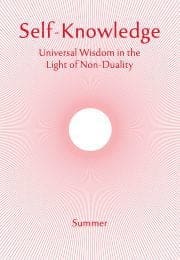Creating the Valuable
Amidst the religious ferment of 17th century Europe, new sects arose, and in some instances men and women of eminence emerged to give a lead to the people. The Quakers, or ‘Society of Friends’, was one such grouping, and Isaac Penington, the subject of this article, was one of the Society’s leading lights.
Isaac was born in 1617, the son of a puritan alderman, who was at one time the Lord Mayor of London. He received a good education and when he grew up threw himself into the fashionable, but somewhat decadent, life of contemporary London society. In this period he married the already divorced Lady Mary Springett. They moved in the favoured circles which surrounded the government of the Commonwealth.
The Society of Friends began to form in about 1647, influenced by the preaching of George Fox. The daughter of Lady Mary by her first marriage was a Quaker, and married William Penn, the later founder of Pennsylvania. Isaac Penington married into this circle, and in 1658 he and his wife both joined the Society, rejecting the worldly advantages which they had hitherto enjoyed. He became one of the greatest of the Quaker mystics and left a large body of writings on the inner path.
The Quakers laid great stress on silence. The form of their meeting was then, as it is now, that of a group silence, waiting upon the inspiration of the spirit. It is not quite formal meditation; anyone who felt moved to speak was free to do so. But they regarded this silent communion as their special form of worship, and they understood that real love can only be expressed in silence and concentration; it is not effusive. There is, in fact, an art in loving which needs to be learnt. Love is an attempt to overcome the feeling of separateness and isolation, which besets the individual in an alien world. But love is not only an urge to break through the barriers of an alien world and establish some real communication, it is also an urge to break out of the limitations of the empirical personality itself. It is, in other words, an urge towards self-transcendence.
There is a deep significance in the feeling of love, because it is quite overtly a feeling for infinity and immortality. Even the physical love of parents is an instinct towards immortality—perhaps a blind instinct, but nonetheless an instinct to go on existing in the child on the physical plane, and so to escape the inevitable death of the body. And the love of the parents for the child is another form of self-transcendence, an escape from the confines of limited self-love.
But, as all the wisdom teachers tell us, if love is limited to the physical plane it is superficial and soon disappointed. We must love another person for their personality, for their inner being, not only their outer shell. Higher still is the love of a person for what they really are.
Subscribe or enrol for free guest access to read all of this article and Self-Knowledge online.
Already subscribed or enrolled? Log in:


